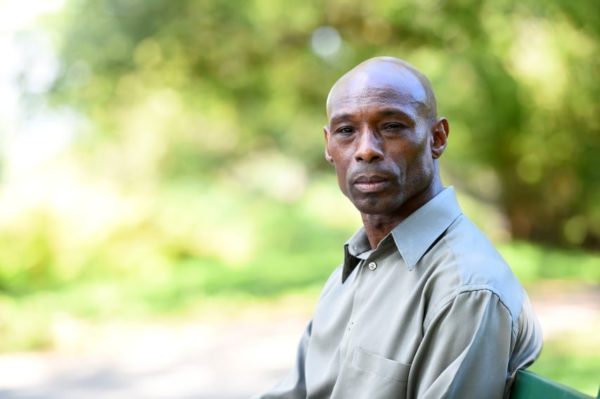The state of Massachusetts will pay a $1 million settlement to a Black man who spent nearly 38 years in prison on a wrongful murder conviction.
According to NPR, the settlement with the Massachusetts Attorney General was finalized Tuesday in Suffolk Superior Court where 55-year-old Fred Clay‘s conviction was vacated just two years ago. The settlement is the highest amount allowed under a new state law.
“It’s a great day for justice and it is a great day for Mr. Clay …,” Jeffrey Harris, one of Clay’s attorneys who sued the state for compensation last summer, said in a statement. “The Commonwealth was willing to pay the full million dollars that is available under the law and it does appear that in this case, the law worked the way it was supposed to.”

Fred Clay, then 16, was charged as an adult in the murder of a taxi cab driver. (Photo: Meredith Nierman/WGBH)
Just weeks after turning 16 years old, Clay was arrested in 1979 and charged as an adult in the murder of a taxi driver in Roslindale, Mass. He was prosecuted on a first-degree murder charge and convicted based, in part, on the testimony of a witness who only identified Clay as a suspect after being hypnotized by a detective, NPR reported.
Clay was finally released from prison in August 2017.
“Well, it’s been a long time coming,” the then-53-year-old said at the time. “It’s been 38 years for something I didn’t do. I’m kind of overwhelmed and sort of nervous.”
Clay’s freedom came after the Suffolk County District Attorney’s Office re-investigated his case through its Conviction Integrity Program, thanks to efforts by the state’s Innocence Project. Following his release, however, Clay struggled to find stable housing and a good paying job. He wasn’t receiving any financial assistance from the state either, making his newfound freedom a “struggle for basic survival.”
“Filling out job applications meant accounting for the 38-year gap in his employment history,” NPR’s Chris Burrell wrote in a four-part series for radio chronicling Clay’s life post-exoneration. “And while Clay’s conviction was overturned by a judge, an employer checking for a criminal background would still see his arrest for murder.”
That’s when State Sen. Patricia Jehlen stepped in, penning a bill that demanded quicker cash assistance, as well as help with housing and work development training to wrongfully convicted persons. She used Clay’s case as a reason to overhaul the way the state assists those who’ve been falsely convicted and jailed.
“Immediately upon release, the person could receive $5,000 and immediate help with things like finding a job or finding a home, getting health insurance — all of those are things that would be a part of their transition out of prison,” Jehlen said.
The senator talked the bill over with Attorney General Maura Healey, who was also in favor of changing the law to make it easier for people like Clay to be paid. According to the news site, less than half of the 69 individuals who sued the state for compensation have received any money.
Last year, the law was rewritten to increase the payment limit from $500,000 to $1 million. Clay’s attorneys filed a lawsuit for compensation in June. The new payout amounts to about $26,000 for each year he was falsely imprisoned.
“Would anyone take $26,000 to be in prison for a year?” Harris asked. “Probably not.”
Before Clay’s settlement, the average payout was $364,000.


